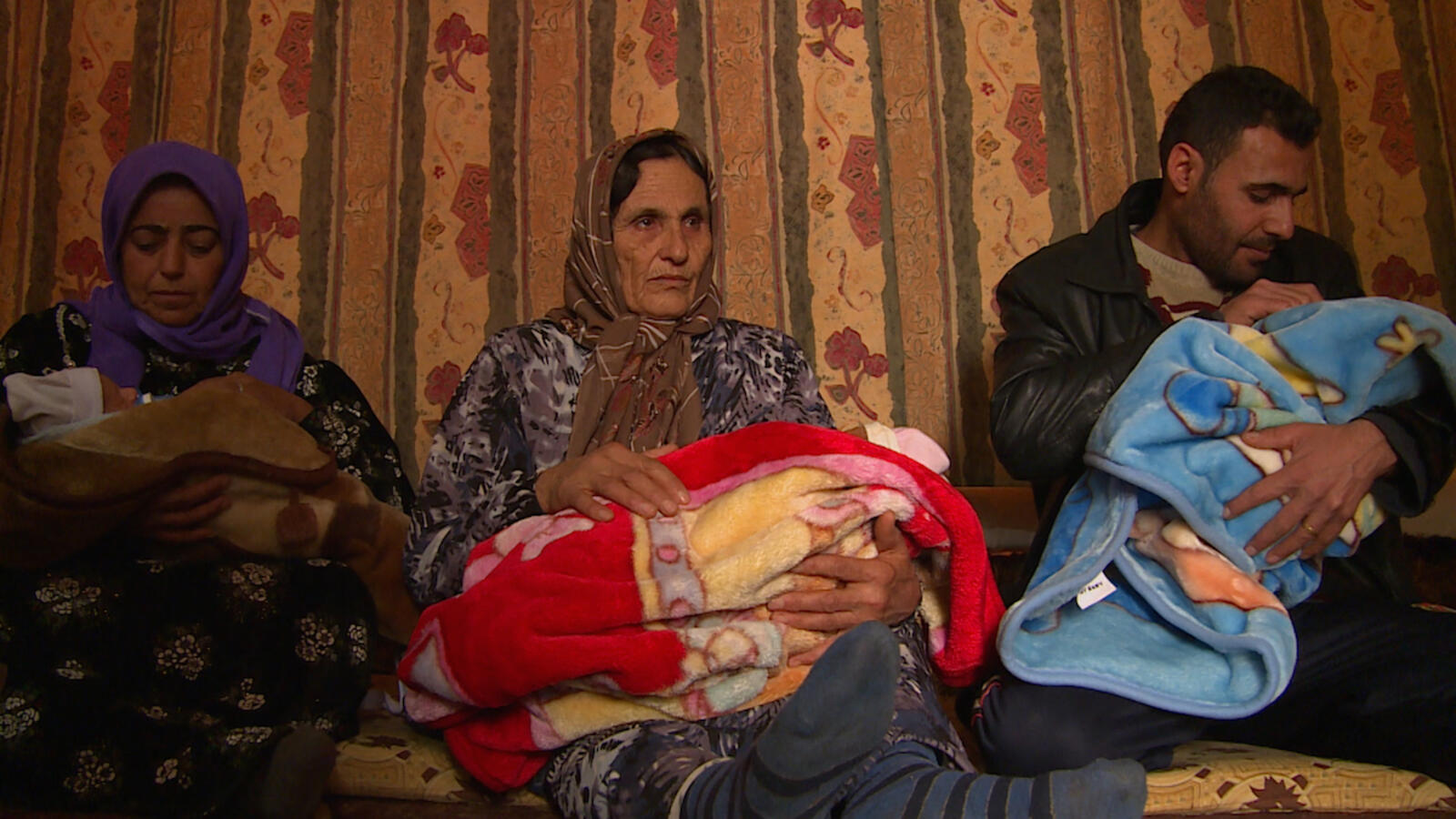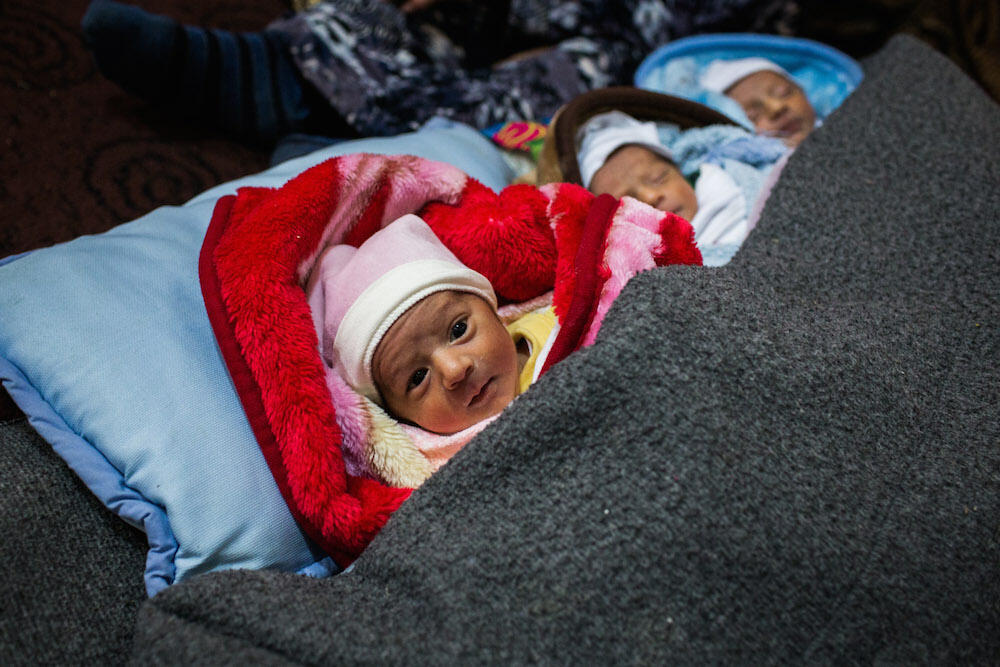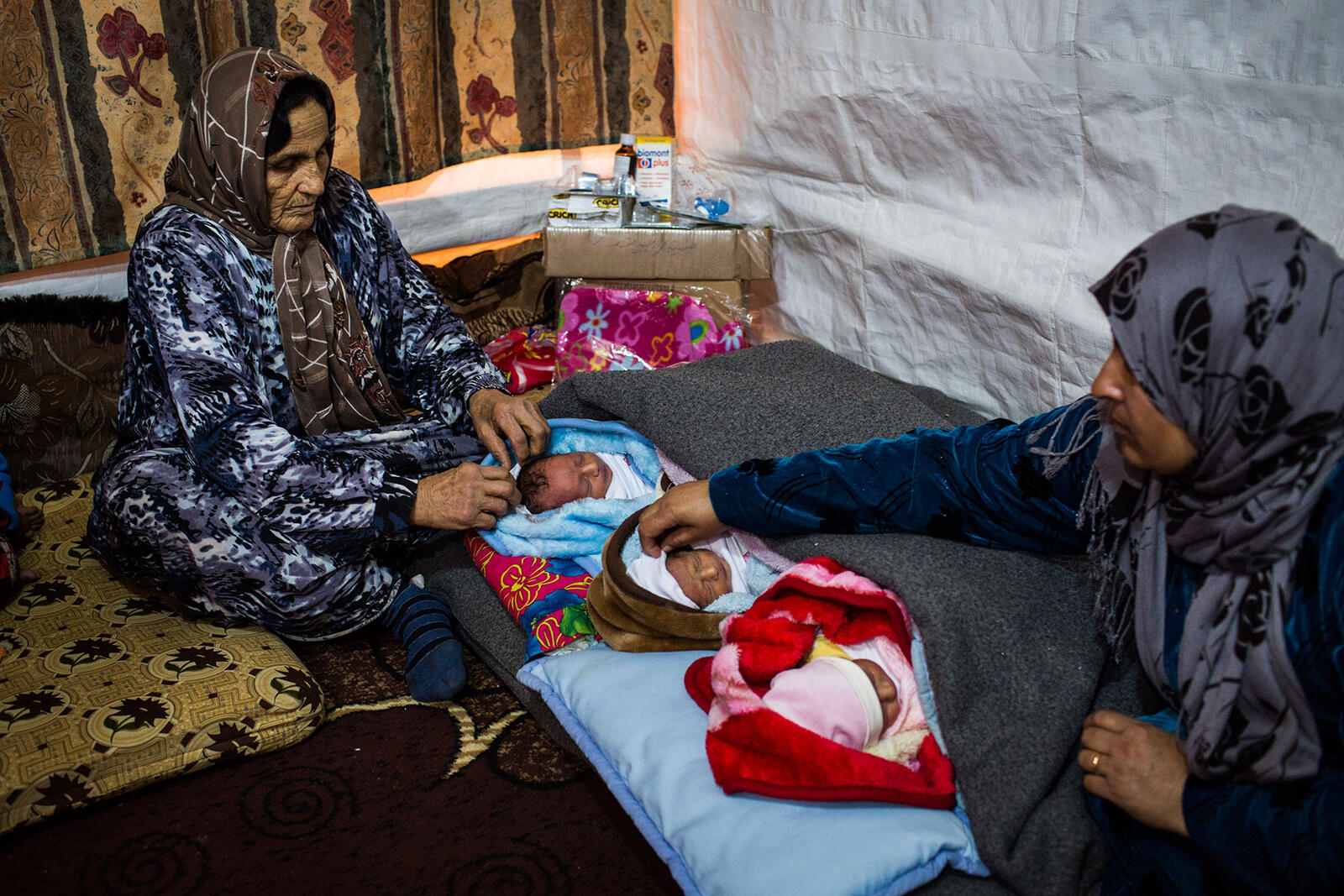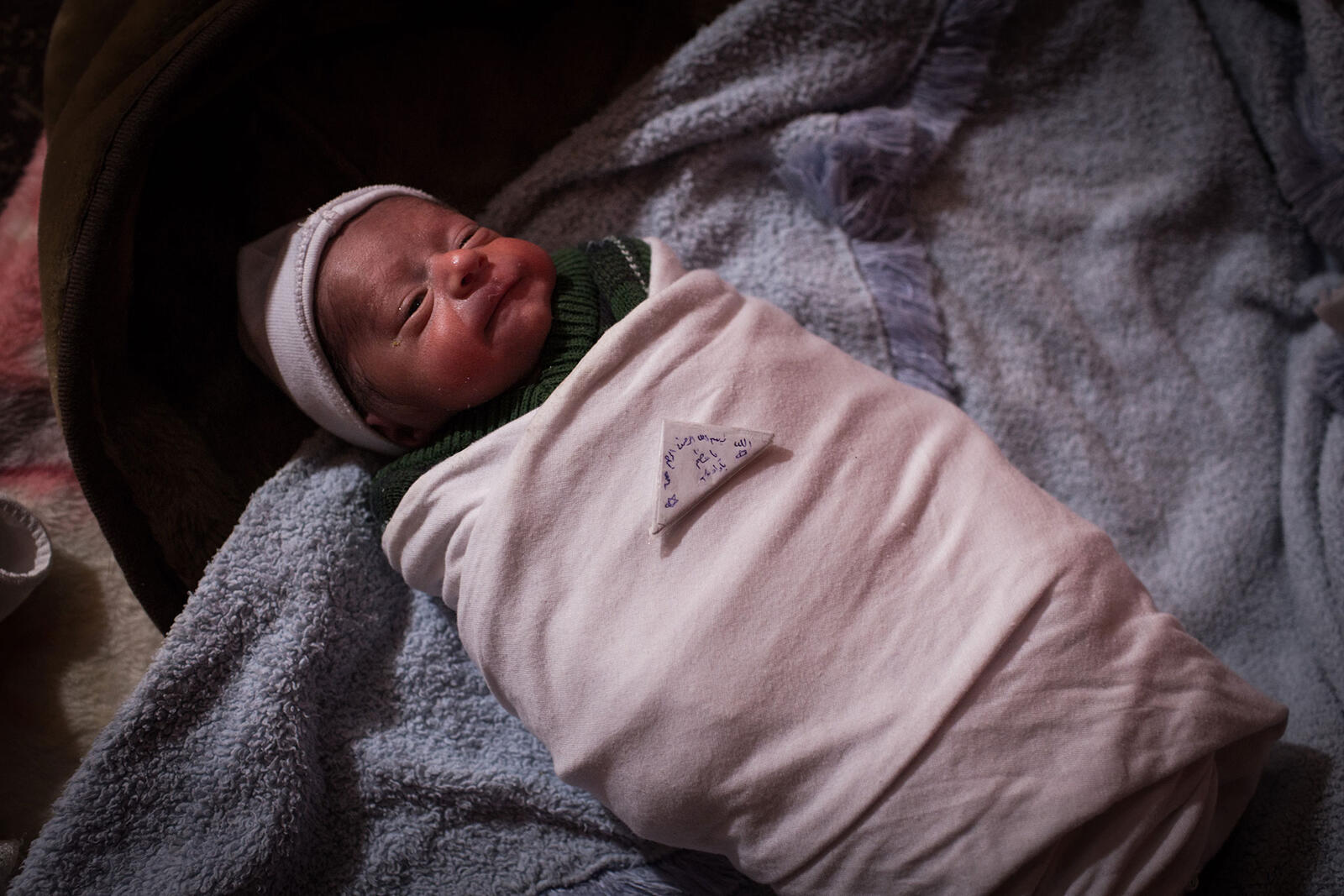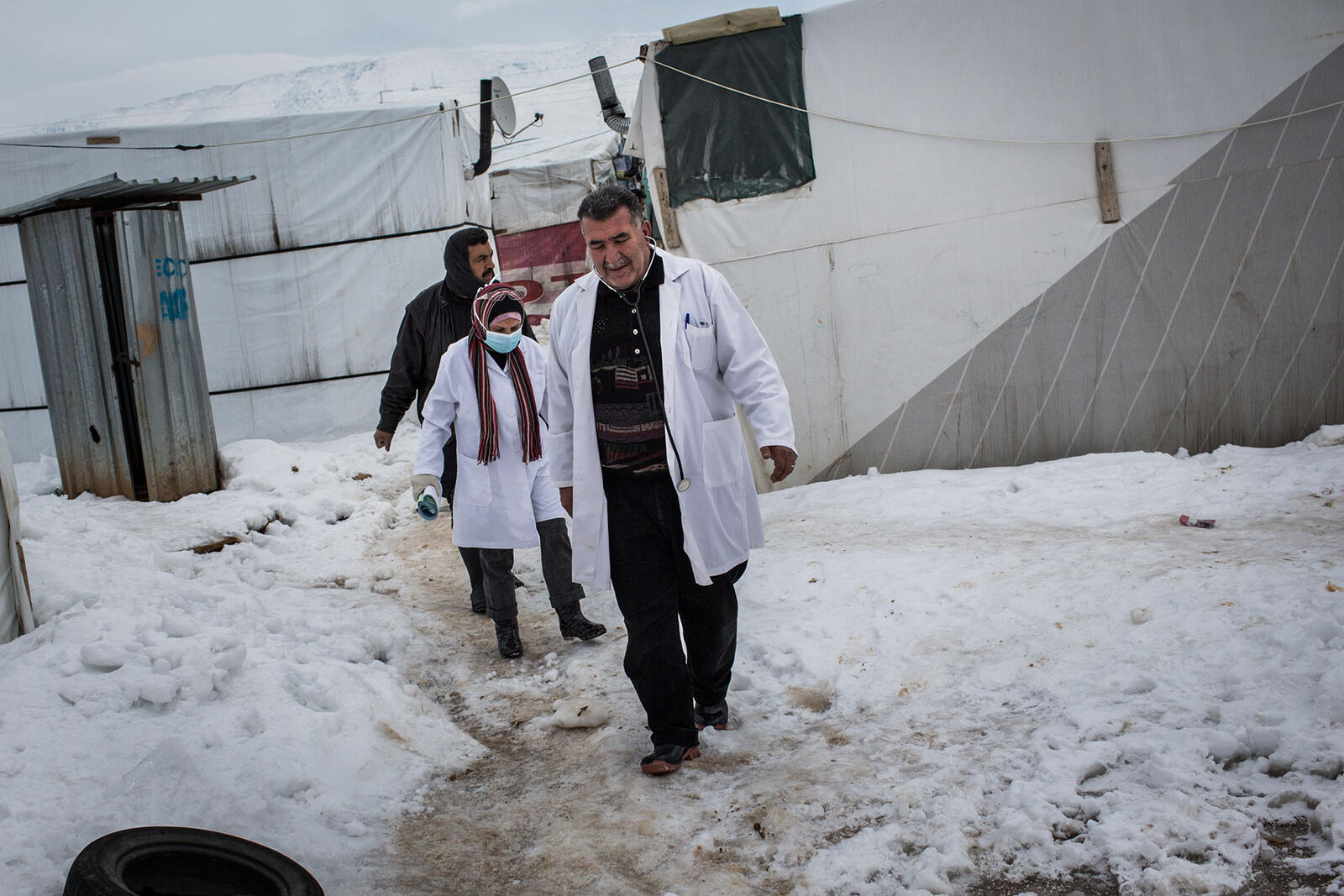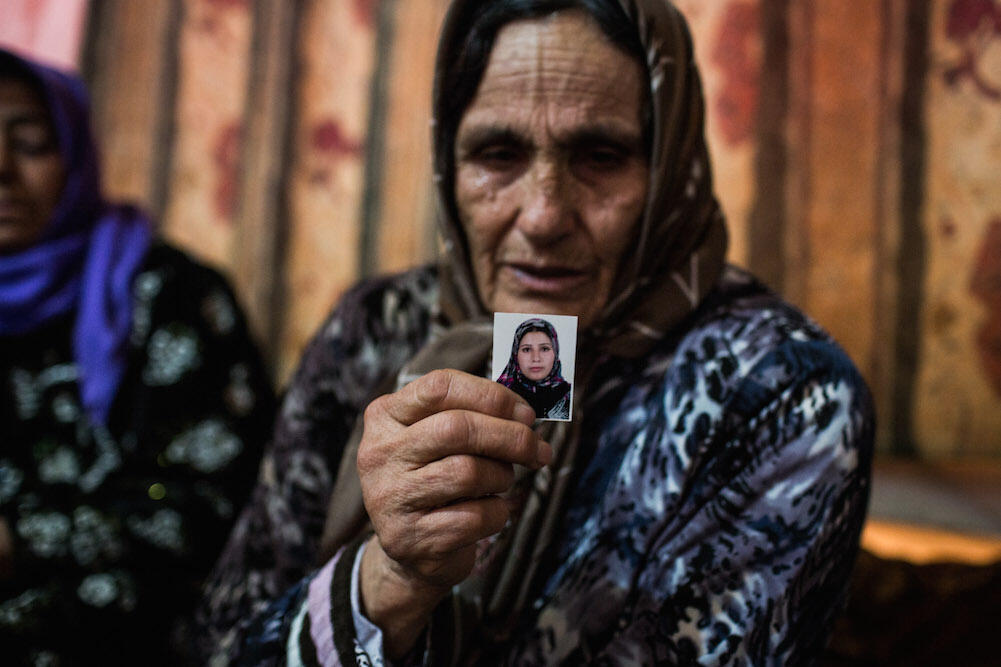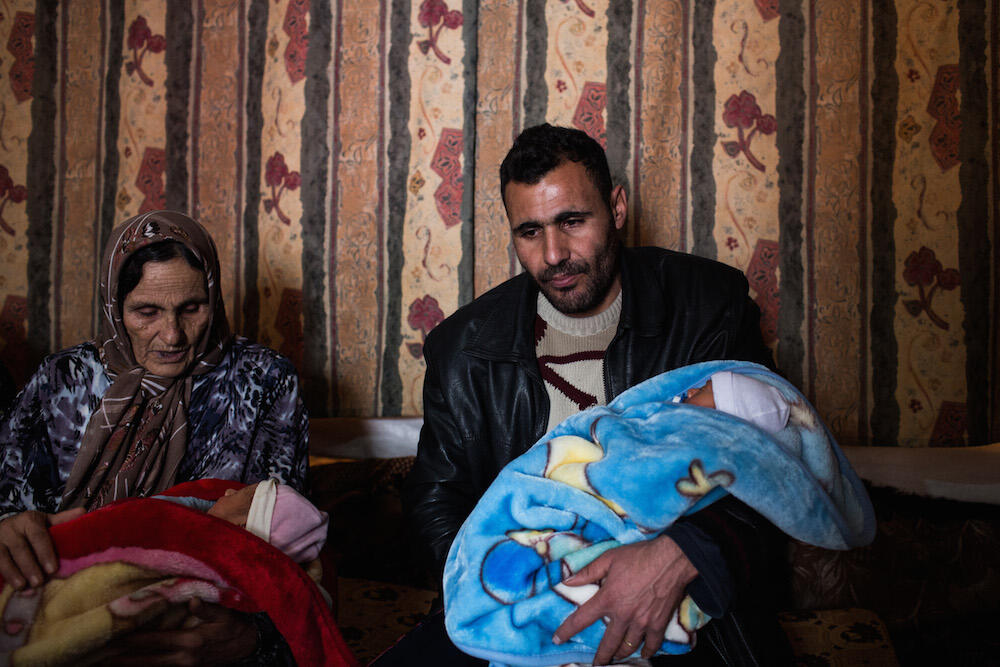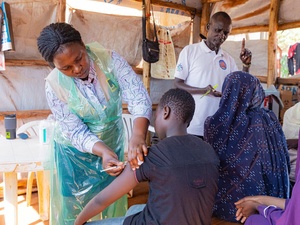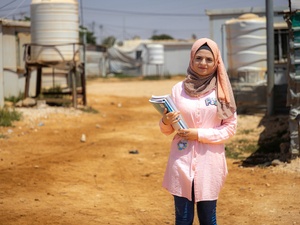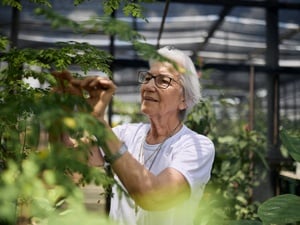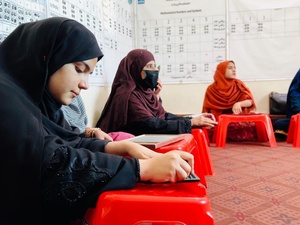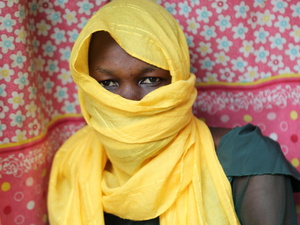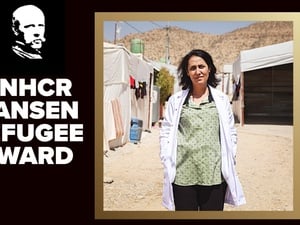Three baby brothers
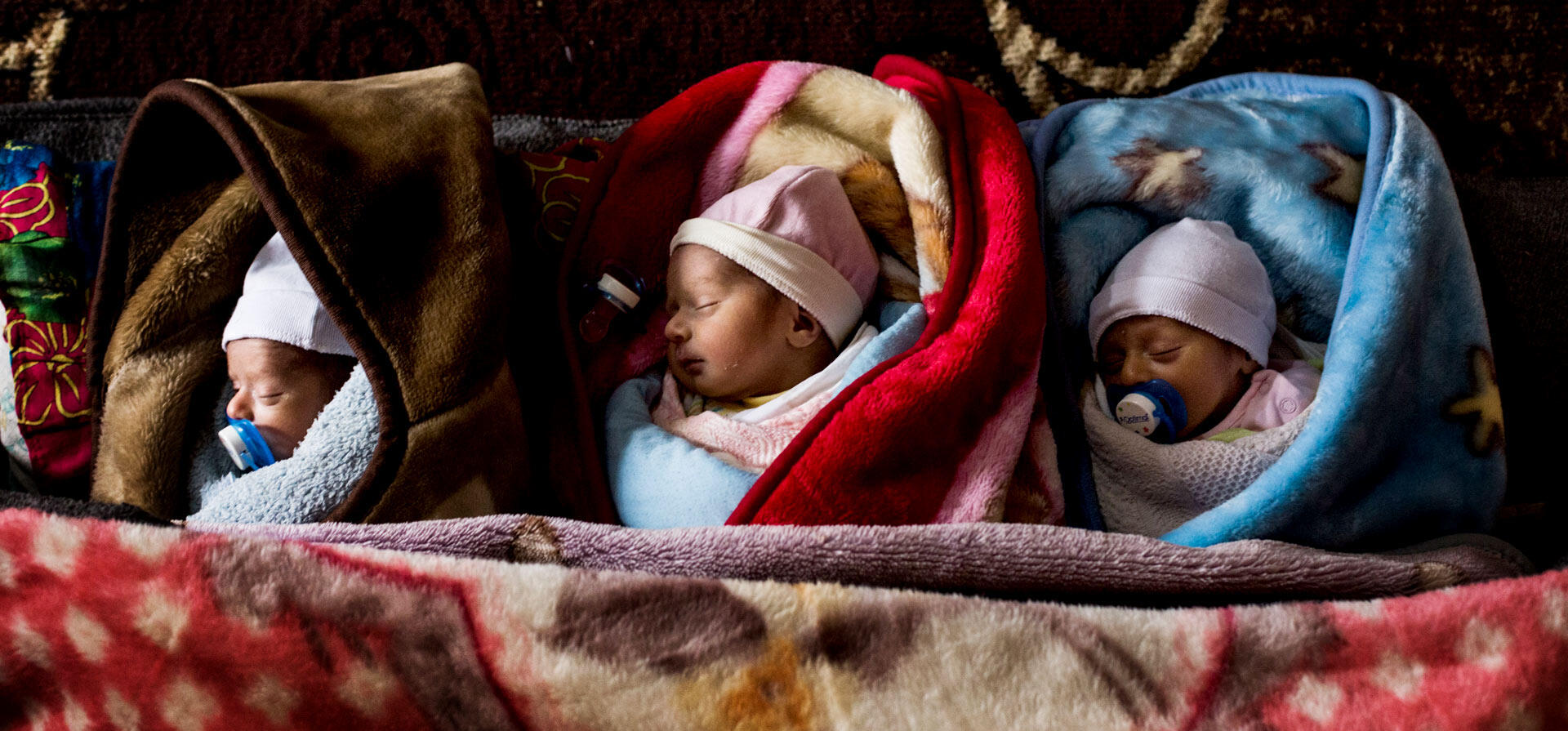
Three baby brothers
"How do you tell them apart?" I ask Jalila, the grandmother of newborn triplets in Lebanon's Bekaa Valley. "I just know," she replies confidently. The baby boy in her hand, she notes, looks different from his two brothers, who are identical. I take a closer look, but still can't tell who is who.
Riyadh, Ahmed and Khalid were born to Syrian refugee parents on New Year's Day. They are tiny, fragile and beautiful. The first thing they will see when they open their eyes is a blanket of white snow outside, almost as wondrous as they are.
I first hear about the triplets on a visit to the Bekaa Valley, where a fierce snowstorm is underway. My curiosity piqued, I decide to track them down.
Their tent, when I eventually find it, is surrounded by snow and filled with people. We receive a warm welcome, but the mood is sombre. Joy at the arrival of new life into the family is mixed with grief at the loss that came with it.
The name of their mother, Amal, means 'hope'. But after giving birth to the triplets, she experienced heavy bleeding. Doctors tried in vain to save her life. She never got to see her beautiful boys.
The family tells me how she named them before giving birth and how she kept telling her husband Saleh to look after them if something happened to her. Amal's own mother died the same way.
Saleh, 31, still remembers how he met Amal and fell in love with her immediately. She loved children, he says. It is no surprise: the triplets have three older siblings, a girl and two boys, all under four years of age. "My wife was a beauty queen," he recalls. "When I saw her we liked each other straight away. I loved her so much, and she loved me back."
Saleh's mother tells me that she woke up to crying sounds a few nights earlier. Thinking it was the triplets, she got out of bed, only to find her son embracing his three eldest children. They were grieving for their mother – all Saleh could do was hold them tight and weep with them.
If there is one thing I have learned about refugees through my work with UNHCR, it is that strong family bonds and an overwhelming sense of community are what hold them together. It is their way of facing crisis and seems to help a great deal. Saleh looks and sounds weighed down by the responsibility facing him, but he is surrounded by family members: his mother, sisters, sisters-in-law, cousins and uncle – all offering a helping hand.
His mother, who has already raised 12 children and is now taking on the responsibility of raising the triplets, says this isn't what she imagined she would be doing at this age. I decide to test her strength. I ask whether she would consider letting someone else raise them. "Never!" she says. She has even refused an offer from her own daughter, so that the triplets are not separated.
Despite their hardship, it's reassuring to see the triplets being raised in a loving and caring community who would do anything for them – who, even in the harshest winter conditions, keep them warm and very much loved.


